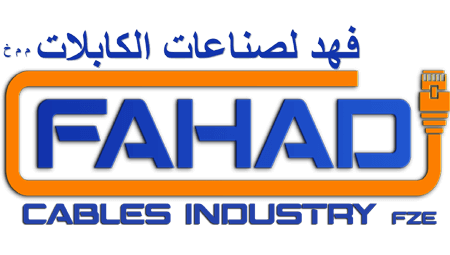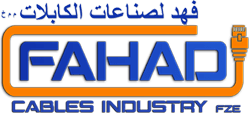The Essential Guide to Access Control System Cables by Fahad Cables Industry FZE
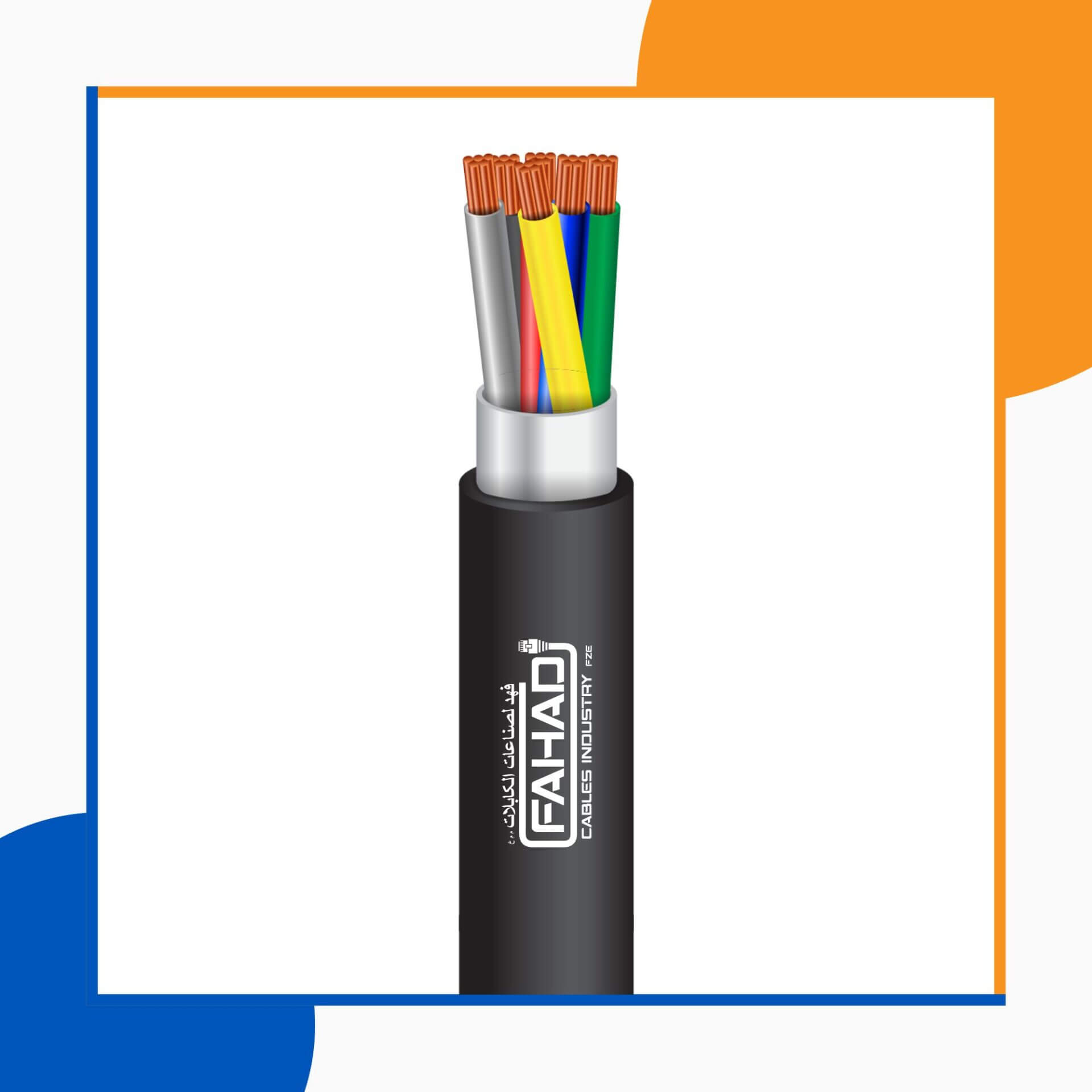
Introduction to Access Control Systems
Access control systems are critical components of modern security solutions, designed to manage and restrict entry to designated areas or resources. By ensuring that only authorized personnel can gain access, these systems play a pivotal role in safeguarding properties, whether in residential homes, commercial buildings, Access Control System Cables or industrial sites. The importance of access control systems cannot be understated, as they not only protect physical assets but also contribute to the overall safety of individuals within a facility. Access Control System Cables
Typically, access control systems operate through a combination of hardware and software components that work together to verify identities. This often includes physical devices such as card readers, biometric scanners, and keypads, along with software that manages access permissions and logs entries and exits. Different types of systems exist to cater to specific needs; for instance, standalone systems provide basic security for single doors, while networked systems offer centralized control for multiple entry points, enhancing security across larger facilities.
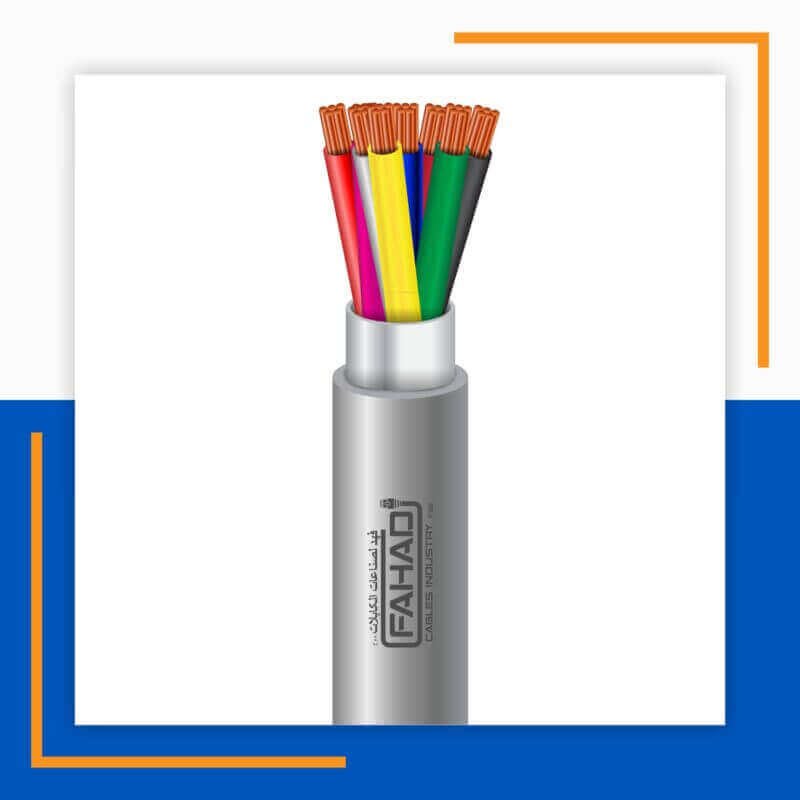
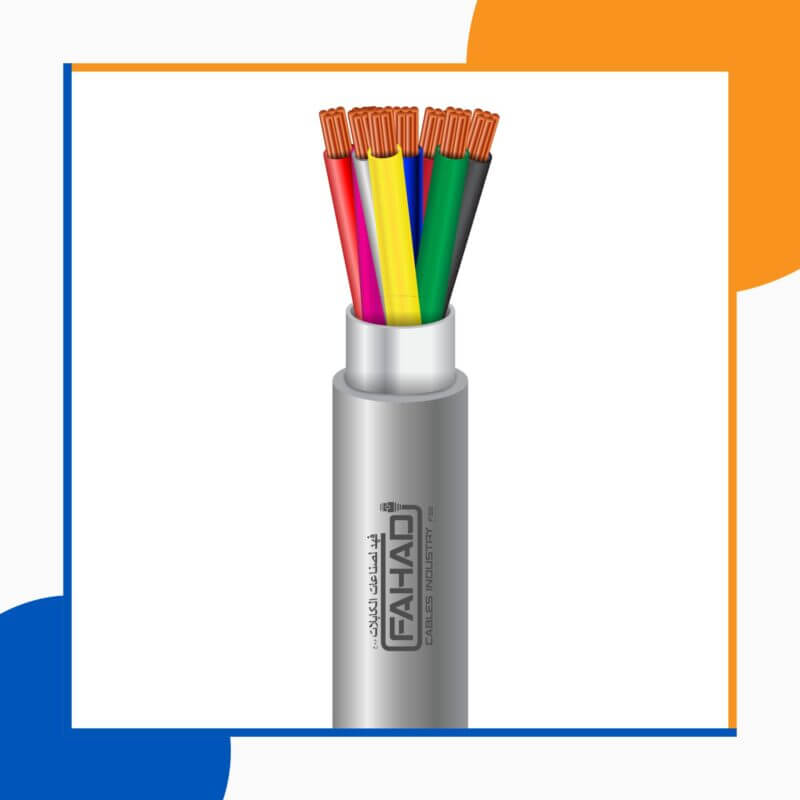
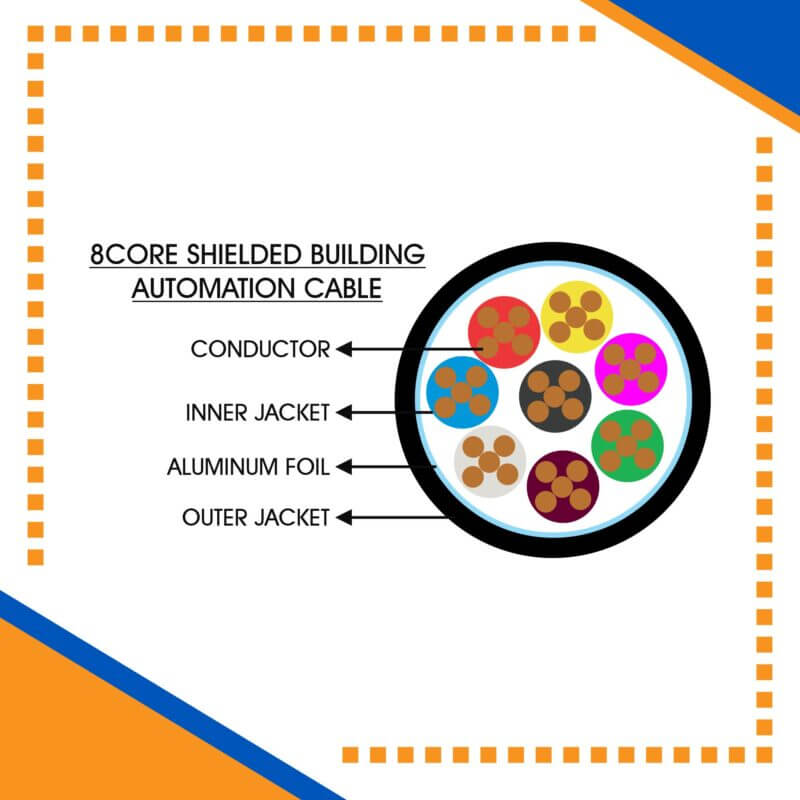
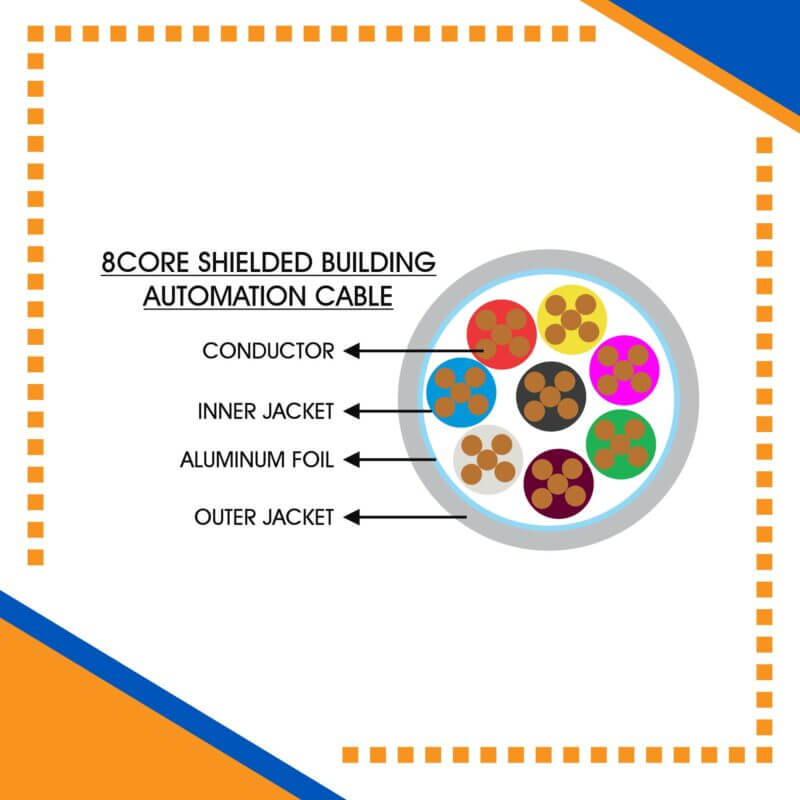
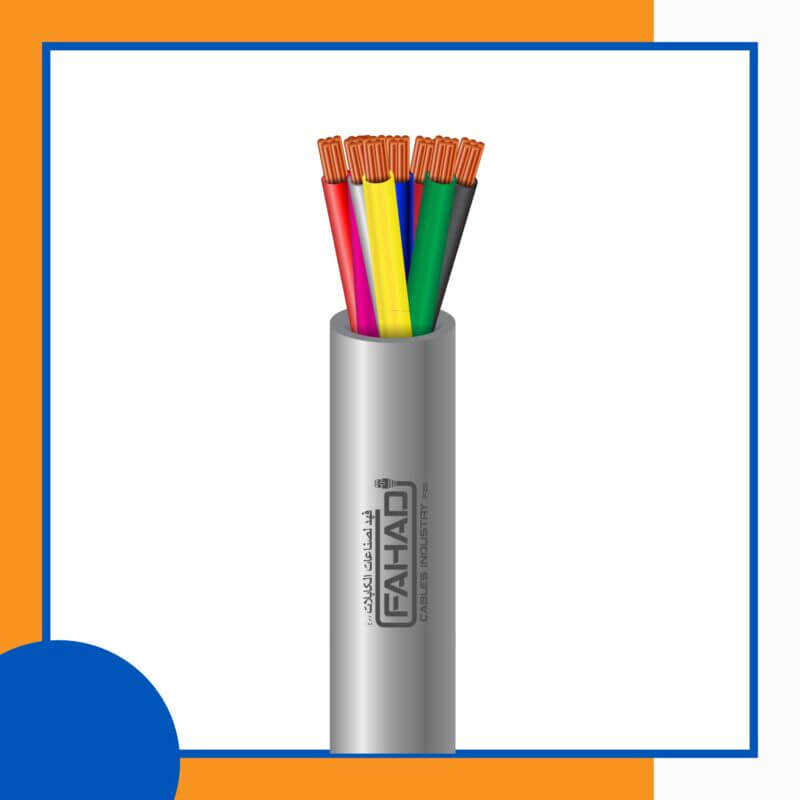
In residential settings, access control can involve simple keyless entry systems, while commercial establishments may employ more sophisticated solutions that feature multi-factor authentication. In industrial environments, access control systems frequently integrate with other security measures like surveillance cameras and alarms, creating a comprehensive security framework. Additionally, modern technology has led to the adaptation of mobile access control systems, allowing users to leverage smartphones for entry management.
Understanding the functionality and importance of access control systems sets the stage for recognizing the role of cables in these configurations. Cables facilitate communication between various components, ensuring seamless operation and reliability of the system. Hence, a well-structured access control system, underpinned by quality cabling, is essential for optimal security management.
Understanding the Role of Cables in Access Control Systems
Cables play a crucial role in the functionality and reliability of tmt 4 door controller. These systems rely on a wide variety of cables to facilitate essential operations, such as data transmission and power supply. Without appropriate cabling, communication between key components—like card readers, biometric scanners, electric locks, and control panels—would be significantly compromised, leading to potential vulnerabilities and operational failures.
When discussing data transmission, it is important to highlight that tmt 4 door controller frequently integrate multiple devices that must communicate efficiently. The cabling used, such as twisted pair or coaxial cables, ensures that data signals transfer seamlessly between these devices. For instance, twisted pair cables are commonly employed to minimize electromagnetic interference, thus enhancing the integrity of data transmitted. Proper cable selection is therefore paramount for maintaining real-time communication, which is critical for immediate access decisions.
Moreover, power supply is another integral aspect that cables address within access control systems. Many components require a constant power source to function reliably. Utilizing power over Ethernet (PoE) cables permits both data and power to be delivered via a single cable, simplifying installation and reducing the need for multiple wiring pathways. This attribute becomes particularly advantageous in environments where installation logistics may pose a challenge.
In addition, understanding the different types of cables necessary for effective communication is vital. Common cable types include shielded and unshielded twisted pairs, fiber optic cables, and multi-conductor cables. Each type has distinct advantages and applications tailored to specific security needs. Therefore, selecting the appropriate cable type based on the system’s requirements is essential for optimal performance.
In conclusion, the integration of suitable cables in access control systems is fundamental to ensuring reliable data transmission and adequate power supply, ultimately supporting the overarching objective of security and access management.
Fahad Cables Industry FZE: A Leader in Cable Manufacturing
Established in the heart of the United Arab Emirates, Fahad Cables Industry FZE has earned a distinguished reputation as a premier manufacturer of high-quality cables specifically designed for security systems. Founded with a vision to cater to the growing demand for reliable and efficient cable solutions, the company has transformed into a key player in the cable manufacturing industry. Over the years, Fahad Cables has consistently embodied its commitment to innovation and quality, ensuring that its products meet the highest industry standards.
Fahad Cables Industry FZE prides itself on its robust infrastructure and state-of-the-art manufacturing facilities, which are equipped with advanced technology. These capabilities enable the company to produce a diverse range of cables tailored to specific applications within access control systems and other security infrastructure. Understanding the critical role that cables play in system reliability and performance, the company focuses on using high-grade materials and adhering to stringent quality control processes.
The visionary leadership of Fahad Cables has positioned the company as a trusted partner for businesses within the UAE and internationally. With an unwavering focus on customer satisfaction, Fahad Cables continuously engages with stakeholders to comprehend their needs, which informs the development of innovative solutions that empower their security systems. As a result, the company has fostered long-standing relationships with contractors, installers, and end-users, all of whom recognize the value derived from its products.
With a commitment to sustainability and social responsibility, Fahad Cables Industry FZE combines its dedication to manufacturing excellence with eco-friendly practices, reinforcing its reputation within the industry as a forward-thinking leader. Through ongoing investment in research and development, the company remains poised to adapt to the evolving technological landscape, ensuring that its cable solutions for access control systems will continue to meet future demands while upholding the quality that their customers have come to expect.
Types of Access Control Cables Offered
Fahad Cables Industry FZE provides a diverse range of access control cables, specifically designed to meet the varying needs of security installations. Each type serves a unique purpose and is equipped with specific features that enhance performance and reliability in access control systems.
One prominent type is the multi-conductor cable, which is often utilized for transmitting data and power to multiple access control devices, such as card readers and electronic locks. Typically, these cables come with twisted pairs, which help to minimize interference and ensure stable communication between the components. A major advantage of using multi-conductor cables is their ability to support long-distance connections without signal degradation.
Another frequently used cable is the shielded cable, which is specially designed to protect against electromagnetic interference (EMI) and radio frequency interference (RFI). This makes shielded cables particularly suitable for installations in areas with high electrical noise or proximity to other electronic devices. The robustness of shielded cables enhances the overall reliability of access control systems, ensuring consistent performance even in challenging environments.
In addition, Fahad Cables Industry FZE offers low-voltage cable, which is essential for power delivery in various access control applications. These cables are engineered to handle specific voltage ratings, guaranteeing safety and efficiency in operations. Their use ensures that devices such as alarms and surveillance systems operate optimally without the risk of overloading.
Each type of access control cable manufactured by Fahad Cables Industry FZE combines quality materials and advanced engineering, making them ideal for enhancing the reliability and effectiveness of security installations in diverse environments. Understanding the specifications and applications of these cables is crucial for selecting the right one for any particular access control project.
Benefits of Using Fahad Cables in Access Control Systems
Access control systems are pivotal in safeguarding premises, and the quality of cables used in these systems can significantly influence their performance. Fahad Cables Industry FZE specializes in producing high-grade cables that meet the stringent requirements of modern access control technologies. One of the most compelling benefits of utilizing Fahad Cables is their durability. These cables are designed to withstand various environmental factors, including temperature fluctuations and exposure to moisture. This resilience ensures that the access control systems function optimally, even in challenging conditions, thereby minimizing the likelihood of malfunctions.cables used for access control system
Reliability is another fundamental characteristic of Fahad Cables. By incorporating advanced engineering techniques and quality materials, these cables deliver consistent performance, aligning with the expectations of end-users. For instance, a case study involving a corporate office found that switching to Fahad Cables decreased system downtime by over 30%, demonstrating their effectiveness in maintaining uninterrupted access control operations.
Moreover, cost-effectiveness plays a crucial role in the decision-making process for installers and businesses alike. Fahad Cables are competitively priced, ensuring that organizations can equip their access control systems without compromising quality or performance. The longevity of these cables further enhances their cost efficiency; clients often note that the initial investment pays off over time due to reduced maintenance and replacement needs.
Compatibility is also a notable benefit. Fahad Cables are designed to work seamlessly with a wide range of access control systems, simplifying the installation process and enhancing overall system integrity. When choosing cables for access control, the advantages offered by Fahad Cables Industry FZE stand out as a strategic investment in security technology. Through careful selection of their products, companies can realize substantial improvements in operational efficiency and system reliability.
Installation Guidelines for Access Control Cables
Installing access control cables requires careful planning and execution to ensure optimal performance and compliance with industry standards. One of the first steps in the installation process is selecting the appropriate cable routes. It is crucial to choose paths that minimize the exposure of cables to potential physical damage as well as electromagnetic interference. For instance, when possible, run cables away from sources of electromagnetic fields, such as motors and transformers, which can compromise the system’s performance.
Minimizing interference is not only about physical placement; using shielded cables can also significantly reduce the chances of signal degradation caused by external factors. Shielding helps protect the data transmission integrity, ensuring that the access control system functions reliably. Equally important is to maintain adequate separation distances between various types of wires, especially those carrying high voltage, to prevent cross-talk and interference.
Security during installation should not be overlooked. Properly securing all cables is essential to avoid tampering or accidental disconnections. Utilizing conduit, cable trays, or raceways can help safeguard cables against unauthorized access and environmental factors. Regular inspection of these installations can also ensure ongoing integrity. Additionally, compliance with relevant standards such as the National Electrical Code (NEC) or local regulatory requirements should be adhered to, as these establish safety and operational benchmarks that must be met during installation.
Documentation of the installation process is another best practice that should not be neglected. Maintaining detailed records regarding cable types, installation methods, and routes taken provides valuable references and facilitates easy troubleshooting in the future. Overall, effective planning and adherence to guidelines play a pivotal role in the successful installation of access control cables, ensuring both functionality and security of the access control system.
Maintenance Tips for Access Control Cables
Proper maintenance of access control cables is essential to ensure their longevity and optimal performance. Regular inspections are a critical first step in this process. It is advisable to schedule inspections at least twice a year, though more frequent checks may be warranted depending on environmental conditions and usage levels. During these inspections, look for any visible damage such as fraying, cracking, or excessive bending of the cables. These are clear indicators that the cables may require immediate replacement or repair.
Another important aspect of maintenance is identifying signs of wear. Early detection can prevent minor issues from escalating into significant problems. Keep an eye out for corrosion or exposure to moisture, which can lead to electrical failures and compromise the access control system’s efficiency. Moreover, if you notice any unusual functioning of the access control system, it’s crucial to consult a professional technician as soon as possible to investigate any underlying issues with the cables.
Cleaning the access control cables is also vital to their upkeep. Use a soft, damp cloth to wipe away dust and debris from the surface of the cables, being careful not to use excessive moisture that may seep into connections. Additionally, it’s advisable to protect the cables from physical damage by keeping them clear of high-traffic areas, using cable management solutions such as cable ties or conduits, and avoiding sharp turns or kinks during installation. When installing new cables, opt for those with a durable sheathing material that is resistant to abrasion and environmental factors.access control cables
In conclusion, maintaining access control cables through regular inspections, timely identification of wear signs, and proper cleaning and protection practices can significantly enhance their lifespan and ensure the reliability of the access control system.
Future Trends in Access Control Cables and Technologies
The landscape of access control technologies is rapidly evolving, driven by advancements in Internet of Things (IoT) applications and the emerging need for more sophisticated security solutions. As businesses and residential spaces strive for enhanced protection, the demand for smart access control systems has surged. This trend not only alters the functionality of access systems but also necessitates significant changes in the types and specifications of cables used in these applications.
IoT integration in security systems allows for real-time monitoring and control, significantly increasing the operational demands placed on the cables that facilitate these systems. Modern access control systems often rely on networked devices that require cables capable of supporting high data transmission rates. Consequently, there is a growing need for cables that are not only robust but also offer superior shielding and noise protection to maintain signal integrity in increasingly complex deployments.
Furthermore, as environmental considerations gain prominence in various industries, cable manufacturers are adapting to produce more sustainable and efficient products. Innovations in cable design have led to the development of lighter, more flexible cables that can be easily installed in diverse settings while still meeting the rigorous demands posed by advanced access control technologies. Enhanced durability and resistance to environmental factors such as moisture and temperature variations are also critical attributes that manufacturers are incorporating to extend the lifespan of cables.
Moreover, smart access control solutions featuring biometric identification and mobile access applications further emphasize the need for cables that support power-over-Ethernet (PoE) technology. PoE-enabled cables streamline installations as they transmit both power and data through a single cable, thus enhancing the overall efficiency of access control systems.
As these trends continue to shape the future of access control technologies, the evolution of cable requirements will play a pivotal role in ensuring that security systems remain agile, efficient, and effective in safeguarding assets.
Conclusion
In today’s increasingly security-conscious environment, the role of quality cables in access control systems cannot be overstated. The effectiveness and reliability of an access control system are heavily reliant on the integrity of its components, particularly the cables that facilitate communication between devices. By using high-quality cables, organizations can ensure that their access control systems operate seamlessly, reducing the likelihood of malfunctions or breaches that could compromise security.
Throughout this guide, we have explored various factors that contribute to the performance of cables within access control systems. These include the material composition, appropriate shielding, and the correct gauge selection for various applications. Each of these elements plays a vital role in transmitting data accurately and securely, thereby enhancing the overall functionality of the system. Moreover, investing in quality cables can lead to long-term cost savings by reducing the need for frequent replacements and minimizing downtime associated with repairs.
Fahad Cables Industry FZE stands out as a trusted provider of robust and reliable cables designed specifically for access control applications. Their commitment to quality and innovation ensures that customers receive products that not only meet industry standards but also exceed expectations in performance. By choosing Fahad Cables, businesses can be confident in the security of their installations, knowing that they are equipped with the best available technology to protect their premises and assets.
In summary, the significance of selecting high-quality cables for access control systems is evident. The assurance of reliability, enhanced security, and overall system efficiency makes it imperative for organizations to prioritize their cable selection. Fahad Cables Industry FZE remains at the forefront of this critical component, providing solutions that empower businesses to safeguard their environments effectively.
